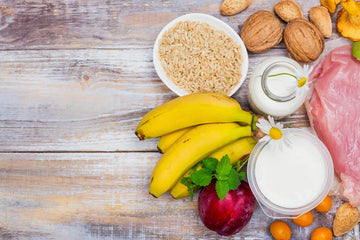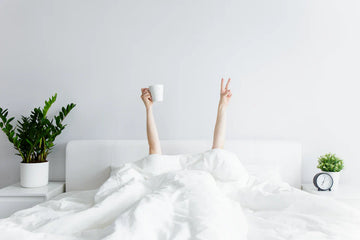Conversely, what we consume affects how well we sleep. Certain nutrients can either promote relaxation and sleep readiness or keep us alert and awake.
Foods that Promote Sleep:
- Melatonin-rich Foods: Melatonin regulates sleep cycles. Foods like almonds, walnuts, bananas, and cherries are good sources.
- Tryptophan Sources: This essential amino acid helps produce serotonin, which is converted to melatonin. Foods high in tryptophan include dairy products, nuts, seeds, poultry, and certain fruits and vegetables like bananas and spinach.
- Foods with Calcium and Magnesium: These minerals help the brain use tryptophan to produce melatonin. Dairy products, almonds, and green leafy vegetables are excellent sources.
"Calcium helps the brain use the amino acid tryptophan to manufacture the sleep-inducing substance melatonin. This explains why dairy products, which contain both tryptophan and calcium, are one of the top sleep-inducing foods." – Medical News Today
- Vitamin B6 Foods: This vitamin is crucial for serotonin production. Find it in foods like bananas, spinach, and salmon.
- Complex Carbohydrates: Carbs help the brain use tryptophan. Oats, whole grain bread, and pasta can assist in this process.
Foods to Avoid Before Bed:
- Caffeine: It can disrupt sleep, so reduce intake and avoid it several hours before bed.
“There are different views on how many hours before bed you should have your last caffeine intake. Some say caffeine should be avoided for at least 3 to 7 hours before going to sleep. Others say no caffeine after lunch time if you have sleep problems. Many people find that their sleep improves with less caffeine or only having caffeine earlier in the day.” - Sleep Health Foundation
- Alcohol: While it might help you fall asleep, it prevents deeper stages of sleep and can lead to disruptions.
- Spicy and Fatty Foods: These can cause heartburn and indigestion, making it hard to stay asleep.
- High-Water and Diuretic Foods: These increase bathroom trips during the night, which can disrupt sleep.







